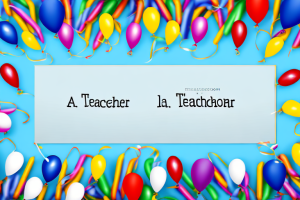Retirement is often viewed as a time of relaxation and fulfillment, a reward for years of hard work. But the question remains: are people truly happier if they retire early? This article aims to explore this topic in exhaustive detail, looking at the pros and cons of early retirement, the link between retirement and happiness, the financial implications, and much more. So, sit back and delve into the world of early retirement, as we uncover the truth behind its impact on happiness and well-being.
The Pros and Cons of Early Retirement
Early retirement has its fair share of advantages and disadvantages. On one hand, early retirees have the freedom to pursue their passions, spend more time with loved ones, and enjoy a slower pace of life. It offers an escape from the daily grind and the ability to prioritize personal interests. However, there are also potential downsides to retiring early. Financial considerations, loss of work-related social connections, and a potential lack of purpose can present challenges. Before embarking on early retirement, it is crucial to weigh these pros and cons and make an informed decision.
Exploring the Link Between Early Retirement and Happiness
Research suggests that the relationship between early retirement and happiness is complex. While retiring early can provide a sense of relief and reduce stress levels, it may not guarantee long-term happiness. Factors such as financial stability, health, and personal fulfillment play crucial roles in determining overall well-being. Studies indicate that happiness in retirement is influenced by various factors, including one’s expectations, sense of purpose, social connections, and the ability to adapt to change. It is essential to recognize that retirement alone does not guarantee happiness; it is the choices we make and the mindset we adopt that ultimately shape our level of satisfaction in life.
The Financial Implications of Retiring Early
One of the significant considerations when contemplating early retirement is the financial impact. Retiring early means relying on savings and investments for a more extended period. This requires careful financial planning and ensuring that retirement income is sufficient to cover living expenses. Early retirees may need to adjust their budget, evaluate their investment portfolio, and seek professional guidance to ensure financial security. Failing to plan adequately could result in financial stress and negatively impact overall happiness in retirement.
Is Early Retirement the Key to a Happier Life?
While early retirement offers the potential for a happier life, it is not a guaranteed path to happiness. Happiness is a subjective and multifaceted concept, influenced by various factors such as health, relationships, fulfillment, and personal growth. Early retirement can be a catalyst for happiness if individuals have a clear vision, engage in meaningful activities, and cultivate relationships outside of work. However, it is essential to remember that happiness is a lifelong pursuit that extends beyond the decision to retire early. It requires ongoing effort and self-reflection to find fulfillment and maintain a positive outlook in retirement.
How Early Retirement Affects Mental Health and Well-being
Retirement, whether early or traditional, can have a significant impact on mental health and well-being. While early retirement provides an opportunity to enjoy more leisure time, it can also lead to a loss of identity and a sense of purpose. The sudden shift from a structured work routine to an unstructured retired life can sometimes result in feelings of loneliness, boredom, or even depression. However, by maintaining social connections, pursuing meaningful activities, and prioritizing self-care, individuals can mitigate the potential negative effects of early retirement and enhance their mental well-being.
Happiness vs. Financial Security: The Dilemma of Early Retirement
One of the dilemmas individuals face when considering early retirement is striking a balance between happiness and financial security. While retiring early may bring joy and fulfillment, it can also pose financial risks. It is crucial to assess one’s financial situation and determine if retiring early is financially viable. This involves evaluating retirement savings, investment portfolios, and considering potential post-retirement income sources. Striking a balance between happiness and financial security requires careful planning and making informed decisions that align with personal aspirations and financial realities.
Uncovering the Psychological Benefits of Retiring Early
Retiring early can offer numerous psychological benefits. It provides an opportunity for individuals to take control of their time, focus on personal interests, and enhance their overall well-being. Early retirement can reduce stress levels, increase life satisfaction, and enable individuals to prioritize self-care. It allows for personal growth, exploration of new passions, and a chance to redefine one’s identity beyond the confines of work. However, it is crucial to remain engaged, maintain social connections, and continue challenging oneself intellectually to maximize the psychological benefits of early retirement.
The Social Impact of Early Retirement on Relationships and Social Connections
Transitioning into retirement, especially in early retirement, can have a significant impact on relationships and social connections. The workplace often serves as a hub for social interactions, and retiring early may result in a loss of these connections. However, early retirement can open up opportunities for individuals to strengthen existing relationships, forge new connections, and spend quality time with loved ones. Cultivating a social support system, engaging in community activities, and exploring shared interests can help mitigate any potential negative social impacts of early retirement and contribute to overall happiness.
Does Early Retirement Lead to a Sense of Purpose and Fulfillment?
Early retirement offers the potential for individuals to rediscover their sense of purpose and find new avenues of fulfillment. It provides the freedom to pursue passions, engage in meaningful activities, and make a positive impact in the world. However, finding purpose in retirement requires self-reflection, exploration, and a willingness to adapt to change. By setting goals, volunteering, pursuing lifelong learning, or starting a new venture, early retirees can foster a sense of purpose and experience a deep sense of fulfillment in their retired years.
Examining the Health Benefits of Retiring Early
Retiring early can have various health benefits. It allows individuals to prioritize their well-being, reduce stress levels, and adopt a healthier lifestyle. Early retirees often have more time to engage in regular exercise, prepare nutritious meals, and get sufficient sleep. Additionally, retiring early eliminates the physical toll of long work hours and commutes, reducing the risk of stress-related ailments. However, it is crucial to maintain a balanced and active lifestyle, seek regular medical check-ups, and address any potential health issues proactively to maximize the health benefits of early retirement.
The Role of Financial Planning in Achieving Early Retirement Happiness
Financial planning plays a crucial role in achieving early retirement happiness. It involves setting clear financial goals, managing debt, maximizing savings, and making informed investment decisions. Early retirees must develop a comprehensive financial plan that addresses short-term and long-term needs. This includes considering healthcare expenses, inflation, and potential income sources during retirement. By ensuring financial stability and security, individuals can reduce financial stress and focus on enjoying the fruits of their early retirement, contributing to overall happiness and peace of mind.
Strategies for Finding Happiness in Early Retirement
While early retirement provides an opportunity for happiness, it requires deliberate strategies to maximize its potential. Engaging in meaningful activities such as hobbies, volunteering, or pursuing a second career can provide a sense of purpose and fulfillment. Maintaining a positive outlook, practicing gratitude, and prioritizing self-care are essential in promoting happiness in early retirement. Additionally, fostering social connections, staying intellectually stimulated, and embracing new experiences can further enhance happiness and create a fulfilling retired life.
Is Early Retirement a Realistic Goal for Everyone?
While early retirement may sound enticing, it may not be a realistic goal for everyone. It requires diligent financial planning, disciplined saving habits, and the ability to live within one’s means. Individual circumstances such as personal obligations, career trajectory, and health considerations also influence the feasibility of early retirement. It is crucial to evaluate personal circumstances, seek professional guidance when needed, and make informed decisions based on an honest assessment of one’s financial situation and personal goals.
The Impact of Work-Life Balance on Happiness in Early Retirement
Work-life balance plays a crucial role in determining happiness in early retirement. Retiring early provides an opportunity to escape the demands and stress of the traditional work environment. It allows individuals to redefine the boundaries between work and personal life, prioritizing personal interests and relationships. Achieving a healthy work-life balance in retirement involves setting clear boundaries, allocating time for leisure activities, and finding a sense of purpose beyond work. By emphasizing personal well-being and ensuring a fulfilling retired life, individuals can find happiness and contentment in their decision to retire early.
The Importance of Hobbies and Activities in Maintaining Happiness after Early Retirement
Hobbies and activities are instrumental in maintaining happiness after early retirement. Engaging in activities that bring joy and fulfillment can provide a sense of purpose and structure. Hobbies allow for personal growth, foster creativity, and offer opportunities for social interaction. Whether it be gardening, painting, playing music, or participating in sports, having a repertoire of activities keeps retirees engaged, stimulated, and connected to their passions. By pursuing hobbies and meaningful activities, individuals can maintain happiness and a sense of fulfillment throughout their retirement journey.
Debunking Myths: Common Misconceptions about Early Retirement and Happiness
There are several common misconceptions about early retirement and happiness that need to be debunked. Firstly, retiring early does not guarantee happiness; it is the choices individuals make and the mindset they adopt that determine their level of satisfaction. Secondly, early retirement does not equate to a life of leisure; it requires careful financial planning and ongoing engagement in meaningful activities. Finally, early retirement is not an escape from work-related stress alone; it presents a different set of challenges and adjustments that individuals need to navigate. Debunking these myths allows for a realistic and nuanced understanding of early retirement and its relationship to happiness.
How to Adjust to the Emotional Changes in Early Retirement for Greater Happiness
Transitioning into early retirement can bring about emotional changes that require adjustment. It is normal to experience a mix of emotions, including excitement, uncertainty, and a sense of loss. To navigate these changes and find greater happiness in early retirement, it is essential to embrace the opportunity for personal growth, maintain social connections, and develop a new sense of purpose. Seeking professional support, engaging in introspection, and being open to new experiences can facilitate emotional adjustment and pave the way for a fulfilling retired life.
Exploring Alternative Paths to Happiness Beyond Traditional Retirement Age
While early retirement may not be feasible or desirable for everyone, alternative paths to happiness can be explored beyond the traditional retirement age. Semi-retirement, part-time work, or engaging in meaningful volunteer work are viable options that offer a balance between work and personal fulfillment. These alternative paths provide an opportunity to enjoy the benefits of retirement while remaining active and engaged. By embracing non-traditional retirement options and adapting to individual circumstances, individuals can find happiness and purpose well into their later years.
Unlocking the Secrets to Long-lasting Happiness in Early Retirement
Long-lasting happiness in early retirement is not an elusive concept but rather a result of conscious choices and ongoing self-reflection. It involves embracing change, maintaining social connections, and continuously seeking personal growth. Happiness in early retirement is found through actively engaging in activities that bring joy and fulfillment, nurturing relationships, and pursuing a healthy lifestyle. By unlocking the secrets to long-lasting happiness, individuals can truly reap the benefits of their decision to retire early.In conclusion, the question of whether people are happier if they retire early is multifaceted. Early retirement provides an opportunity for individuals to prioritize personal interests, enhance their well-being, and find a new sense of purpose. However, it is crucial to consider the financial implications, prioritize post-retirement goals, and stay engaged to maximize the potential for happiness. Ultimately, retirement happiness is a personal journey that requires careful consideration, planning, and an ongoing commitment to cultivating a fulfilling and meaningful retired life. So, take the time to reflect on your aspirations and make informed decisions that align with your vision of happiness in retirement.



